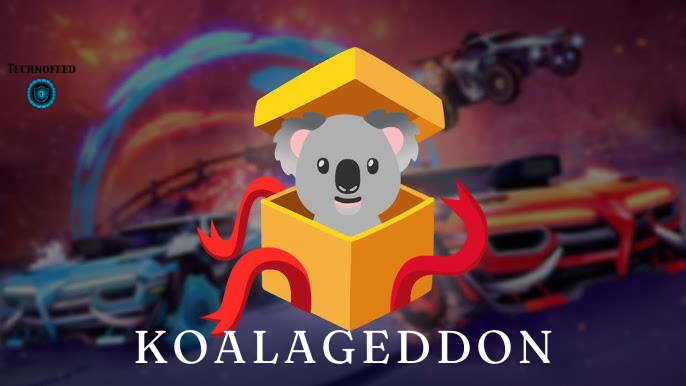The name Koalageddon might sound playful, but it carried heavy implications in the gaming world. It wasn’t just another program—it became a symbol of digital freedom for some and piracy for others. Rising from the underground, it captured headlines, debates, and strong opinions across online forums. To understand its impact, one must look at its origins, how it functioned, and the wider controversies it triggered.
What Exactly is Koalageddon?
Koalageddon is a tool developed with the intent of bypassing Microsoft’s DRM (Digital Rights Management) restrictions. It mainly focused on allowing players to access Xbox Game Pass titles without needing an official subscription. In simpler terms, it cracked open the gates of a paid gaming service and offered free access to titles otherwise locked behind a paywall.
This wasn’t just a technical tool—it became a conversation starter. Gamers who celebrated it saw it as a rebellion against corporate control, while critics considered it outright theft.
The Origins and Developers Behind Koalageddon
Unlike many underground projects, Koalageddon’s creation wasn’t completely anonymous. It surfaced on well-known platforms, quickly spreading across gaming forums, Reddit communities, and niche piracy hubs.
Its developers appeared motivated by anti-DRM sentiment. Many gamers have long criticized DRM as restrictive, often punishing legitimate buyers more than pirates. Koalageddon, therefore, was painted as a protest project, not just a crack. Yet, because of its potential for misuse, it drew sharp attention from Microsoft and industry watchdogs.
Why Did Koalageddon Gain Popularity?
Koalageddon exploded in popularity for three main reasons:
Access to premium games for free
Gamers could enjoy new releases from the Xbox Game Pass library without spending a dime. This instantly created buzz.
Frustration with DRM restrictions
Players who were tired of constant verification checks or login requirements saw the tool as a way to take control of their own library.
Curiosity and hype in gaming communities
Online discussions around “forbidden tools” often spark intrigue. Many users simply downloaded it to test how it worked, fueling its growth.
The Controversy Surrounding Koalageddon
Koalageddon wasn’t just about free games—it was about ethics, law, and the future of digital ownership.
The Legal Issues
From a legal standpoint, using or distributing Koalageddon violated intellectual property rights. Microsoft and other companies that depend on Game Pass subscriptions viewed it as piracy, with potential consequences for anyone caught using it.
The Moral Debate
Some gamers argued that they were justified in using such tools, claiming that corporations profit excessively and restrict consumer freedom. Others pushed back, pointing out that piracy harms developers, especially indie creators who rely on every subscription or sale.
The Community Divide
Koalageddon highlighted a growing divide in the gaming community between those prioritizing accessibility and those supporting fair compensation for developers.
Microsoft’s Response and Crackdowns
Microsoft moved quickly against Koalageddon. Reports suggest they tightened security layers around Game Pass and took legal steps to shut down distribution links. Over time, the tool became harder to access and riskier to use.
Interestingly, Microsoft also seemed to learn from the backlash. By improving subscription flexibility and adding more value to Game Pass, they may have aimed to reduce the appeal of piracy-driven tools like Koalageddon.
The Legacy of Koalageddon in Gaming Culture
Even though Koalageddon is less accessible today, its story left behind a lasting mark.
A Symbol of Rebellion
For some, it represented resistance against corporate control and digital restrictions.
A Warning for Publishers
The rise of Koalageddon reminded companies that excessive DRM measures could backfire, pushing users toward piracy instead of preventing it.
An Ongoing Debate
The questions Koalageddon raised—about ownership, access, and fairness—remain alive in today’s gaming industry. The tool may fade, but the debates it sparked continue.
FAQs
What was Koalageddon used for?
Koalageddon was a software tool designed to bypass Microsoft’s DRM protections, giving players access to Xbox Game Pass titles without a subscription.
Is using Koalageddon legal?
No. Using or distributing it violated copyright laws and Microsoft’s terms of service. Users risked penalties, bans, or even legal action.
Why did gamers support Koalageddon?
Supporters often claimed it was a protest against restrictive DRM policies and expensive gaming subscriptions. Some saw it as promoting accessibility.
Did Microsoft completely shut down Koalageddon?
While Microsoft cracked down on distribution and strengthened DRM, copies of the tool circulated for some time. However, its usage declined due to security risks and limited availability.
What impact did Koalageddon have on the gaming industry?
It forced industry conversations about DRM, consumer rights, and the balance between protecting profits and offering fair access to games.
Conclusion
Koalageddon was more than a tool—it was a cultural moment in gaming. It sparked debates about legality, ethics, and the future of digital ownership. While its usage carried risks and consequences, it highlighted frustrations many gamers feel toward restrictive business models. In the end, Koalageddon became both a cautionary tale and a symbol of resistance.
Stay in touch to get more updates & alerts on Technofeed! Thank you


